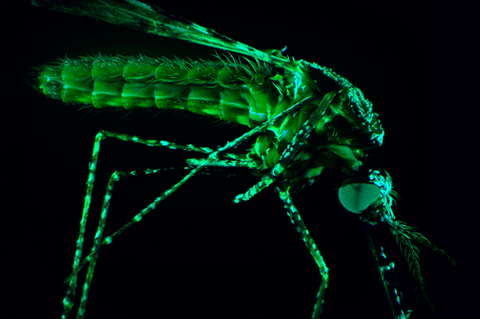
Two WEHI projects have received funding to clinically translate a test that can detect people with ‘hidden’ Plasmodium vivax (PV) – considered the most widespread and resilient malaria parasite for its ability to remain dormant in the liver for years.
The funding will support the development of the first point-of-care rapid diagnostic test and the deployment of the laboratory version of the test in the Philippines.
Over $1.3 million in NHMRC funding has been awarded to two WEHI-led projects fast-tracking East Asia’s goal of eradicating malaria by 2030. Over $945,900 in funding will be used to develop the first point-of-care rapid diagnostic test that can detect people at risk of relapsing P. vivax infections, the predominant source of malaria outside of Africa.
Over $361,800 has been awarded to deploy a high-throughput, laboratory version of the test in the Philippines to understand the cause of recent malaria outbreaks and for early detection of people at risk of carrying the silent parasite.
Dormant state
The Plasmodium vivax parasite is particularly challenging because it can be carried in a dormant state in the liver for years, only to later reawaken and continue spreading disease.
Professor Ivo Mueller, a world expert in the biology, epidemiology and control of P. vivax malaria, worked on crucial research that led to the first test to accurately pinpoint when someone has been infected with the parasite and importantly, whether they are at risk of relapsing.
His team will now work to develop a rapid point-of-care diagnostic test based on this research, in a continuing collaboration with Australian biotech companies Axxin and ZiP Diagnostics.
Professor Mueller, Joint Division Head of WEHI’s Population Health and Immunity Division, said the test would be a game-changer for malaria control programs that have been trying to stamp out this relapsing parasite for decades.
“Being able to directly target hidden liver-stage parasites is crucial for successful vivax elimination because they can be responsible for over 80 per cent of all blood-stage infections. Unfortunately, there are currently no tests that can accurately detect who is carrying this insidious parasite in their bodies,” he said.
“Our novel test can show whether someone has had a P. vivax infection within the last nine months. This timing is critical as most people in tropical regions are expected to relapse within nine months of a previous blood-stage infection.
Malaria reinfection
“Malaria reinfections are a leading cause of residual transmission that continue to challenge malaria eradication efforts.
“Our test is the closest the scientific world has come to tracking and predicting these ‘hidden’ infections and we are thrilled to start translating these findings to a rapid diagnostic test to improve the lives of those affected by the malarial health burden.”
Professor Ivo Mueller is conducting this work with WEHI researcher, Dr Rhea Longley, who will deploy a high-throughput, laboratory version of the diagnostic test in the Philippines. Both researchers are members of WEHI’s Centre for Global Disease and Health.
Leveraging the expertise of teams in the USA and Philippines, researchers will implement a multi-disciplinary approach to focus their efforts in the Sultan Kudarat province that has seen recent P. vivax outbreaks.
Chief Investigator, Dr Longley, said efficiently eliminating the parasite required malaria control programs to develop tools that can detect areas with ongoing transmission and identify and treat people with these dormant infections.
Asymptomatic infections
“To date, there has been no assessment of the underlying P. vivax asymptomatic infections that may be contributing to these sporadic outbreaks in Sultan Kudarat,” Dr Longley said.
“Our secondary test, conducted in a laboratory, will be able to confirm whether the silent parasite is the cause, by accurately identifying individuals with recent P. vivax exposure in the region.
“We can then track residual transmission, identify key demographic and geographic drivers of transmission and start treating at-risk community members before the infection becomes dire.
“These insights will enable us to get ahead of the parasite to predict where it may be silently hiding, who its next target is and when it is likely to attack – something no research team has been able to do so far.”
Dr Longley said the team hoped the findings could be used to fuel malaria eradication in not only the Philippines, but across East Asia.
Leading the Australian arm of the project, Professor Mueller and Dr Longley will use the generated data to inform locally appropriate and evidence-based interventions to improve health policies in the Philippines.
The research underpinning the new test was led by Professor Mueller and Dr Longley, with Dr Michael White from the Pasteur Institute and Professor Takafumi Tsuboi from Ehime University and is part of the WEHI-led Vivax Serology Partnership (VISPA). The research is co-funded by the Bill & Melinda Gates Foundation and a recently awarded Ramaciotti Health Investment Grant.







No comments yet